
Contents
Guide
M y name is Garth Davis, and I was a proteinaholic.
For many years, I obeyed what Id been taught by the medical establishment, by my colleagues, and by the media: that each and every meal and snack had to contain a huge serving of my beloved protein. I would gulp down protein drinks whenever possible, and dive into big, thick steaks practically daily. Protein was my drug and, worse yet, it was my prescription. I actually pushed protein on my patients, encouraging them to do as I did.
I am happy to say that I have overcome this obsession with protein. This book is a detailed guide to my recovery. As you read through my journey you may think that I actually hate protein. In reality, how can you hate a macronutrient? Obviously we need protein. My concern is more with the fact that we no longer talk about food as food. Rather we are obsessed with breaking food down to its component parts and, in so doing, have developed an unhealthy obsession for one particular macronutrient. I am disturbed by the fact that protein has become a veritable nutritional rock star, omnipresent in our food and advertising like never before. We seemingly cannot get enough of protein, and this reality is leading us down a very dangerous road. In fact, eat more protein may be the worst advice that experts give to the public.
Whether you are seeing your doctor, nutritionist, or your trainer, protein is strongly advised. Should you happen upon a vitamin store you will be inundated with pills and concoctions boasting higher and higher protein contents. Even our grocery stores are pushing new and interesting food-type substances that are loaded with protein, while the produce aisles get smaller and less inviting. Why buy an apple when you can get high-protein cereal bars, high-protein drinks, even protein in your vodka. Do people really think vodka laced with protein is healthy? The answer is most certainly yes. As a recent Wall Street Journal article puts it, Protein on a label has what researchers call a health halo effect. People assume the product will give them energy or make them full. The article was appropriately entitled, When the Box Says Protein, Shoppers Say Ill Take It. Most recently, a survey done by the International Food Information Council Foundation found that 63 percent of Americans are looking for protein foods when deciding what to eat, and a whopping 57 percent said they are trying to eat as much protein as possible!
Protein is everywhere. Big deal. So what is the problem? In a word: confusion. Some of us eat protein to lose weight, while others eat protein to gain weight. Ponder that paradox for a second. The same product sold to people to lose weight is relabeled and sold to others to gain weight! There are many who believe eating protein will make them healthier and help them live longer. And everybody seems to think protein will give them energy. Meanwhile, anyone who knows the basics of biochemistry or physiology will tell you that energy comes from carbs or fat, not protein. Possibly even more frightening is the fact that protein is one of the few food items that everyone seems to agree on. Experts argue about good fats and bad fats, or good carbs and bad carbs. This is very much part of the reason we are so confused about what to eat. But in protein we all seem to feel safe. No one would dare to argue that protein is bad for you.
Believe me, I am not writing this book because I dare to be different and buck the norm. I am not looking to be sensational, and I certainly hate to further confuse the public. However, given my experience, I am in a unique position to see that we have missed the forest for the trees. The fact is, our protein obsession is killing us and nobody seems to notice. This is not my opinion alone. I have done a tremendous amount of research to come to this controversial conclusion, and I will share with you what I have learned along the way. By the end of this book, you will see that the science shows that our protein obsession may be one of the main causes for the rise we are seeing in obesity, cancer, diabetes, hypertension, and heart disease. The United States is arguably the sickest first world country with the lowest life expectancy, and we eat more protein than any other country. Protein very well may be to blame for our poor health!
Before you dismiss me as a fearmonger, I want you to ask yourself this simple question, Is all this protein making us healthier? In all my years in medicine I have never, ever, seen a patient who was suffering from protein deficiency. I have searched the medical literature and cannot find a single case of protein deficiency in someone eating adequate calories. In fact, if you are getting adequate calories, I am not sure there is such thing as protein deficiency. So how did we get from eating adequate protein to be healthy to our current state of super physiologic doses, and is this making us healthier? When will we finally see that a healthy diet doesnt have to feature protein?
Its been said that we dont change when we see the light, but when we feel the heat. Thats how I finally woke up. A couple of personal health scares shook me so profoundly that I began to doubt what Id been taught about nutrition in medical schooland what my colleagues continued to advise. Instead, I began to do the research for myself.
I was shocked to discover that none of the elements of the Protein Gospel were even a little bit true:
 Protein is not the key to weight lossin fact, animal protein is one of the biggest factors behind the obesity epidemic, and, in virtually every study, animal protein is correlated with weight gain.
Protein is not the key to weight lossin fact, animal protein is one of the biggest factors behind the obesity epidemic, and, in virtually every study, animal protein is correlated with weight gain.
 Animal protein is not one of the healthiest foods aroundrather, it is strongly associated with diabetes, hypertension, heart disease, and cancer, the primary killers of our time.
Animal protein is not one of the healthiest foods aroundrather, it is strongly associated with diabetes, hypertension, heart disease, and cancer, the primary killers of our time.
 Plant-based protein not only existsits much better for you than animal protein and all plants contain more than enough to support every one of your health needs.
Plant-based protein not only existsits much better for you than animal protein and all plants contain more than enough to support every one of your health needs.
 A lower-protein (and low-fat) diet is the most effective way to lose weight, improve your health, and prevent future disease.
A lower-protein (and low-fat) diet is the most effective way to lose weight, improve your health, and prevent future disease.
 Carbs, far from being the enemy, are (in their natural state) the source of human health, vitality, and vigor.
Carbs, far from being the enemy, are (in their natural state) the source of human health, vitality, and vigor.
After years of intense research, I could come to only one conclusion: People whose diets are high in animal protein have significantly higher rates of chronic diseases: hypertension, cancer, diabetes, heart disease, and many, many others, including cataracts, diverticulitis, diverticulosis, inflammatory bowel disease, gall bladder disorders, gout, hypertension, irritable bowel syndrome, kidney stones, and rheumatoid arthritis. Thats what we know for certain. In emerging research (not yet conclusive), higher animal protein consumption is linked to poor mood, loss of mental concentration, and dementia.
This conclusion is supported by virtually every large-scale scientific study: massive efforts that followed thousands of people over many years in multiple countries around the globe. Study after study kept turning up the same types of correlations between animal protein, saturated fat, obesity, and chronic illness. When scientists compared people who ate meat with people who didnt, the meat eaters were heavier, sicker, and more likely to die sooner. (Ill give you more detail in Part II, How We Became Proteinaholics.)
Next page
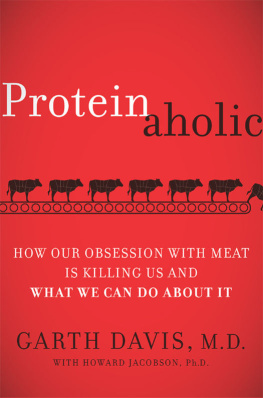
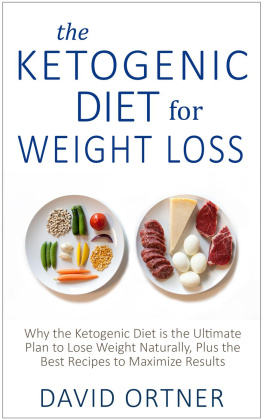
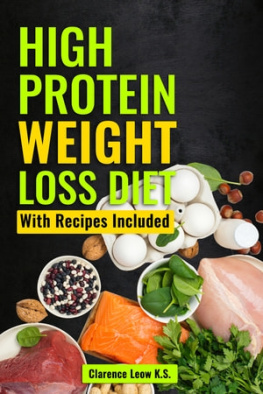

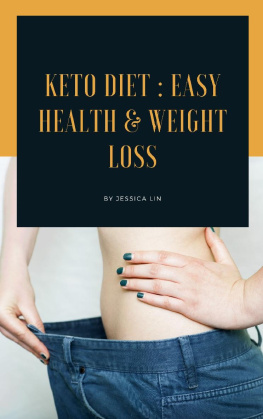
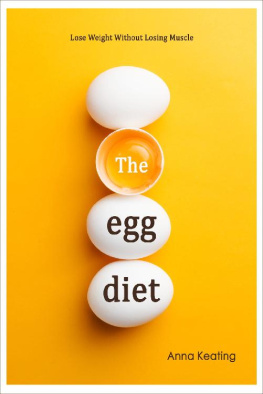
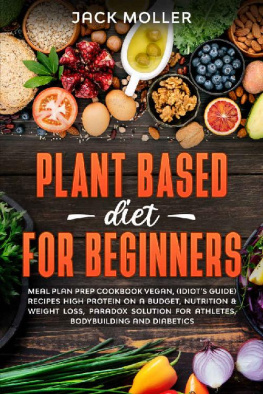
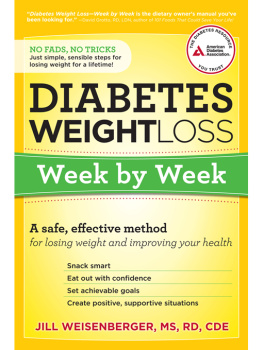
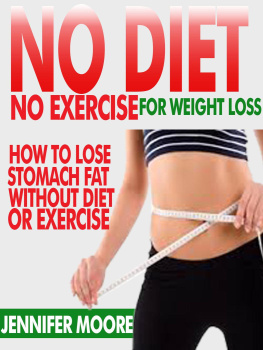
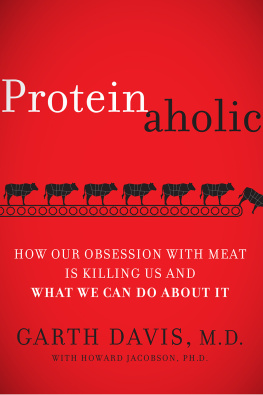
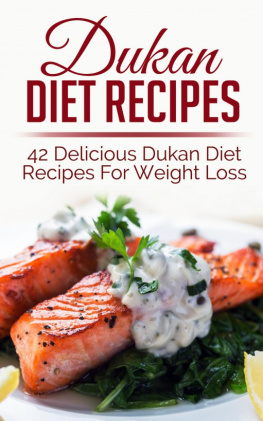
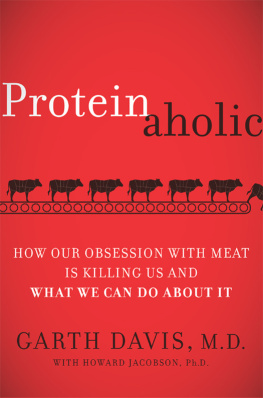
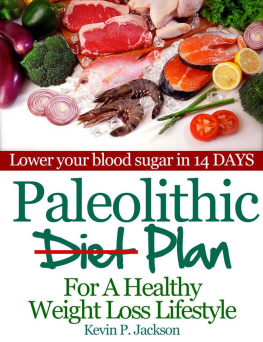

 Protein is not the key to weight lossin fact, animal protein is one of the biggest factors behind the obesity epidemic, and, in virtually every study, animal protein is correlated with weight gain.
Protein is not the key to weight lossin fact, animal protein is one of the biggest factors behind the obesity epidemic, and, in virtually every study, animal protein is correlated with weight gain.